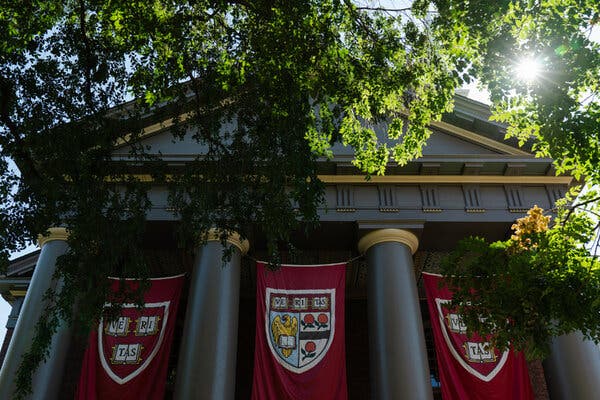Education
Harvard Secures Court Victory Over Federal Funding Cuts

A federal judge ruled on March 13, 2024, that the Trump administration illegally terminated billions of dollars in research funding for Harvard University. While the decision is a significant win for the prestigious institution, uncertainty looms over whether it will actually receive these funds again. The White House responded by stating that Harvard “remains ineligible for grants in the future,” suggesting a possible appeal and raising questions about the administration’s future actions regarding federal funding.
Judge Allison D. Burroughs, who presided over the case in Boston, delivered a critical ruling against the administration. She pointed out that the government could still employ standard tactics to limit federal funding for Harvard and potentially other universities. As a result, university leaders and legal experts nationwide are analyzing the implications of this ruling, seeking ways to protect their institutions from similar funding cuts.
The ruling primarily addressed Harvard’s situation, but its effects could ripple across higher education. Institutions like Cornell University, Duke University, Princeton University, the University of California, Los Angeles, and Northwestern University had already been under intense scrutiny from the administration prior to the ruling. The president of Northwestern University announced his resignation in light of these pressures, highlighting the urgency and seriousness of the situation.
Ted Mitchell, president of the American Council on Education, remarked on the ruling’s complexity, stating, “Winning is not necessarily winning.” He acknowledged that while Harvard has emerged victorious in this instance, the broader conflict against higher education institutions continues unabated. “Certainly, Harvard has won this battle. But the war against higher education remains in full force,” he added.
Judge Burroughs did not shy away from criticizing the administration, stating in her ruling that it had “used antisemitism as a smoke screen for a targeted, ideologically motivated assault on this country’s premier universities.” This assertion underscores the contentious environment surrounding federal funding and its implications for academic institutions.
The outcome of this case will likely serve as a case study for universities navigating similar challenges. As legal teams across the nation scrutinize the ruling, they are faced with the reality that the fight for funding and institutional integrity is far from over. The implications of this ruling may extend beyond Harvard, potentially influencing how universities across the country prepare for future battles over federal support and autonomy.
-

 Science2 months ago
Science2 months agoNostradamus’ 2026 Predictions: Star Death and Dark Events Loom
-

 Technology3 months ago
Technology3 months agoOpenAI to Implement Age Verification for ChatGPT by December 2025
-

 Technology7 months ago
Technology7 months agoDiscover the Top 10 Calorie Counting Apps of 2025
-

 Technology5 months ago
Technology5 months agoElectric Moto Influencer Surronster Arrested in Tijuana
-

 Health5 months ago
Health5 months agoBella Hadid Shares Health Update After Treatment for Lyme Disease
-

 Science2 months ago
Science2 months agoBreakthroughs and Challenges Await Science in 2026
-

 Health6 months ago
Health6 months agoAnalysts Project Stronger Growth for Apple’s iPhone 17 Lineup
-

 Technology2 months ago
Technology2 months agoTop 10 Penny Stocks to Watch in 2026 for Strong Returns
-

 Science4 months ago
Science4 months agoStarship V3 Set for 2026 Launch After Successful Final Test of Version 2
-

 Health6 months ago
Health6 months agoErin Bates Shares Recovery Update Following Sepsis Complications
-

 Technology8 months ago
Technology8 months agoMeta Initiates $60B AI Data Center Expansion, Starting in Ohio
-

 Technology7 months ago
Technology7 months agoDiscover How to Reverse Image Search Using ChatGPT Effortlessly






















